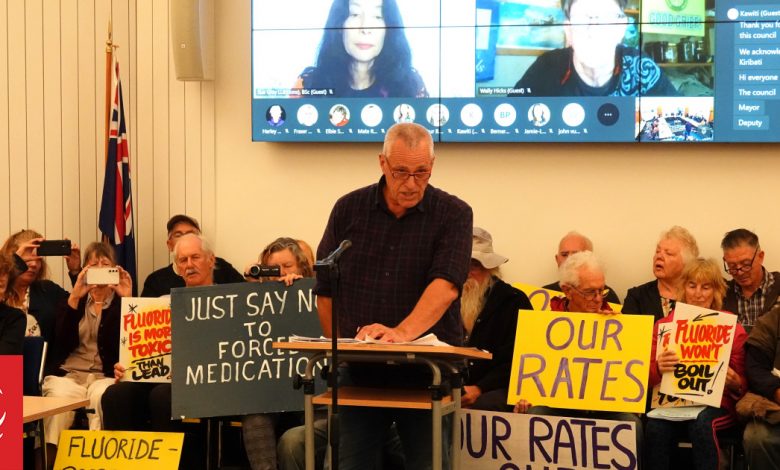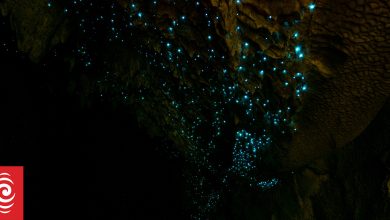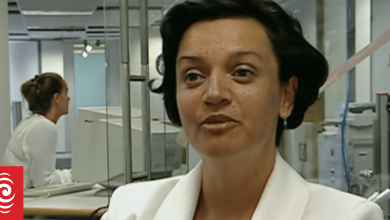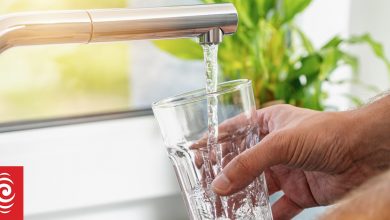Far North council’s request to delay putting fluoride in water denied

The Ministry of Health has refused a request by the Far North District Council to delay the fluoridation of two of its town water supplies – leaving the council scrambling to meet a deadline that is now less than two weeks away.
The council had been ordered to start adding fluoride to its Kaitāia and Kerikeri water supplies by 30 June.
While the council has committed to completing the design work by July this year, the actual construction may not be completed until June 2025.
The cost of complying with the order is expected to be $1.2 million per town, making a total of $2.4m.
During a council meeting on 11 April, elected members resolved to ask the Health Ministry for an extension to the deadline.
The meeting was attended by a large contingent of anti-fluoride campaigners, who applauded councillors’ 9-to-1 vote.
A number of other councils around the country had already been granted extensions ranging from three to nine months.
Following the meeting, kahika (mayor) Moko Tepania wrote to the director-general of health, Dr Diana Sarfati, expressing councillors’ concerns about the cost, potential health risks, and the need for consultation.
Tepania said the expected $6m cost of introducing fluoride district-wide was “a significant financial challenge” for an area of high economic deprivation such as the Far North.
He also said councillors wanted to engage with the community to ensure “a transparent and inclusive decision-making process”.
Sarfati, however, declined the extension, saying a 2021 amendment to the Health Act 1956 empowered her to direct councils to fluoridate drinking water, and that councils were legally required to comply.
That had been confirmed, she said, in a May 2024 High Court decision relating to an injunction sought by the Fluoride Action Network against the Hastings District Council.
The penalty for failing to comply with the order was a fine of up to $200,000, plus $10,000 per day for continued non-compliance.
The council’s head of infrastructure strategy, Tanya Proctor, said staff had been instructed to work with the Public Health Agency to develop a plan for complying with the fluoridation requirement.
Once a plan had been agreed, the Health Ministry would reconsider the compliance dates, Proctor said.
In the past, decisions about whether to fluoridate were left to individual councils, but that changed in 2021 when a new law shifted responsibility to the Health Ministry.
In 2022, then director-general of health Sir Ashley Bloomfield ordered 14 councils around the country – including the Far North – to fluoridate some or all of their public water supplies.
Some councils had paused their fluoridation plans following an earlier High Court decision, released in November last year, that found the Health Ministry’s order was unlawful.
The ministry wrote to councils telling them to continue with fluoridation because the court’s decision was based on a “process error” and did not quash the directive.
Nine councils asked for extensions, with Waitaki and the Far North the only ones to be refused, according to the ministry.
The other councils – Horowhenua, Kawerau, Nelson, Rotorua Lakes, Tararua, Tauranga and Whangārei (for its Bream Bay water supply) – were granted extended deadlines ranging from 30 September this year to 28 March 2025.
The updated version of the Far North District Council Long-Term Plan 2024-27 shows two new items relating to fluoridation have been added to the council’s water supply budget for the 2024-25 financial year.
They are $1.2m for fluoridation of Kerikeri water supply and the same sum for Kaitāia, a reduction from the original costing of $1.8m per town.
During the 11 April debate, councillor Hilda Halkyard-Harawira, who led the call for an extension, said the money would be better spent on improving drinking water quality or better dental services.
The council has not so far been directed to fluoridate other town water supplies in the Far North, such as those in Kaikohe, Kawakawa/Moerewa or Paihia/Waitangi/Haruru/Ōpua.
It was not clear if the council was in line for a subsidy from the Health Ministry to help offset the cost.
In total, the ministry set aside $23.3m over 10 years to help fund the capital costs of fluoridation nationwide.
A council spokesperson said residents in the Kaitāia and Kerikeri town supply areas who did not want to drink fluoridated water could install rainwater tanks, as long as any necessary consents were obtained and District Plan requirements were met.
According to the news on Radio New Zealand




